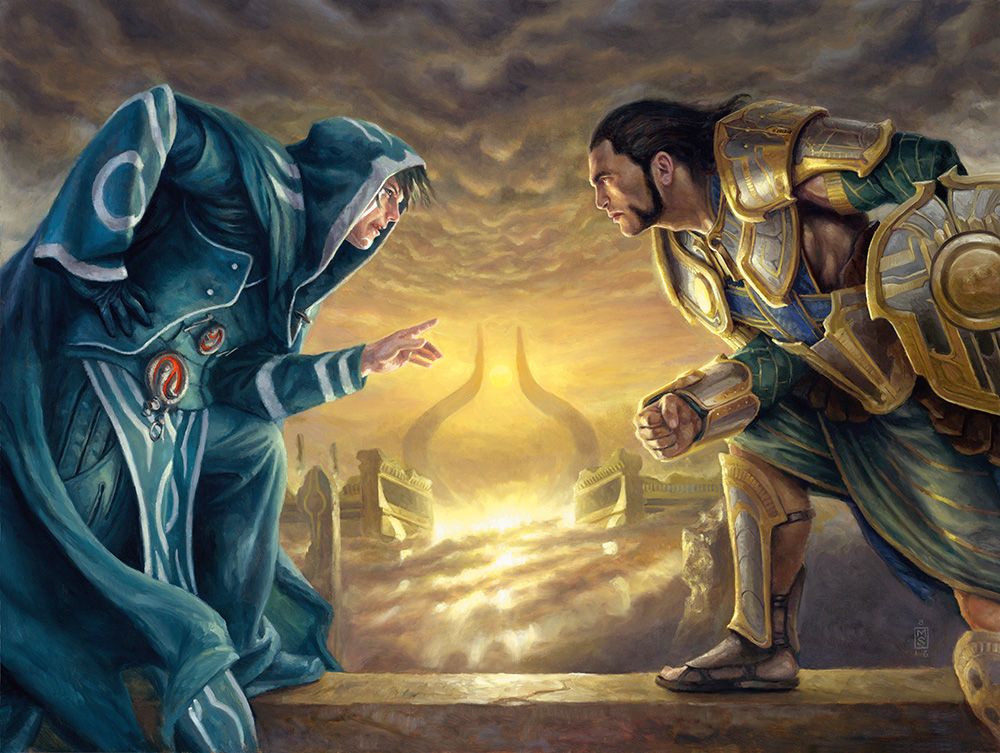How to Be a Good Loser

“Why do I even try?”
Everyone who has played in competitive events has had a similar thought. It feels bad to spend hours upon hours selecting, tuning, and practicing a deck before an event only to go X-3 drop. It’s difficult and takes practice, but changing how you react to failure will help you succeed in the long-run.
When I first started playing competitively, I found some success early with making Day 2 of my first Grand Prix and doing well in small events. At the time, it felt like I could only win more and looking back that was very naïve of me. Thinking I had it all figured out set me up for facing a harsh reality when I went on my first losing streak. I didn’t know how to handle it or even knew why it was happening to me. I spent so much time preparing for tournaments and not doing well, I was beginning to think it was pointless to try and I was just lucky at first. Thankfully, I’ve grown a lot since then and I not only handle losing better but I can assess why I’m losing.
An important thought to remember if you end up on a losing streak is that you are not the only one. Even the best players in the world will have bad tournaments or a string of bad events. For example, it may feel like everyone around is winning the $2,000 in the Arena Opens but in reality, it takes MPL, Rivals, and other experienced players several tries to make it to Day 2. A great lesson a friend told me once was “you have to lose a lot before you win a lot” and this helped me a lot with my mindset when it comes to losing. Losing isn’t fun, but thinking of them as lessons or steps to becoming a winner makes it hurt a little less.
There’s something to be learned from every match of Magic: The Gathering. After a loss, it’s easy to feel like you were just unlucky and maybe it was a part of the reason because variance is an aspect of the game. It’s a good habit to analyze the games to see if you put yourself in the best position to win. Did you do absolutely everything in your control to give yourself the best chances? This involves being honest with yourself about how you played which is hard.
In the current age of Magic where tournaments are online, a good practice to be honest with yourself and to also improve your gameplay is to record the games and watch them later. Watching a match with fresh eyes and more time to think about plays can help catch mistakes and it removes any stressful feelings that were felt during the match that might cloud your judgement. Having other players watch your match with you can be even more beneficial because your peers might see lines you didn’t think about and they can provide an unbiased insight to the games. When laddering on Arena or playing matches on Magic: Online, keeping a notepad next to you to play to write notes about the game will be a good resource to reference later. Unsure about what card to play or if an opening hand is a keep? Write it down and revisit later.
Every player can learn something new about the game. Being open to new ideas and accepting that you probably don’t have it all figured out can help you grow as a player. Playing against better players, watching the pros play their matches, and consuming content created by more skilled players are ways to seek new information about the game. I am always eager to learn something new about Magic and understanding that there's always something for me to discover helped with handling a loss because of the learning opportunity it provided.
Some losses are harder than others. It’s okay to take some time after a loss to be frustrated. Step away from the action and collect your thoughts before returning. Not letting disappointment spiral into full on tilt and learning how to refocus before the next match will prevent losing winnable matches later in the tournament. Not only does it ruin the ability to focus, it also hinders the ability to analyze matches and makes the previous advice in this article hard to practice. I personally walk around, stretch, and make sure I’ve had food and water when I’m feeling like I’m on tilt. Some people feel better after talking about it or listening to music. Everyone deals with tilt in different ways.
The most valuable piece of advice I have for dealing with losses is to be nice to yourself. Telling yourself you’re a bad Magic player and that winning is impossible is damaging to not only your win rate but to your mental health. It’s impossible to consistently do well in events while feeling down. Being self-deprecating due to losses will lead to more losses and creates an endless cycle of having a negative view of oneself. Winning and losing doesn’t define a person. Be kind to yourself, we’re all still learning.
